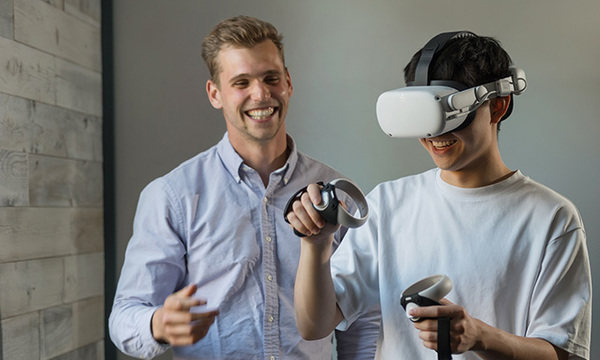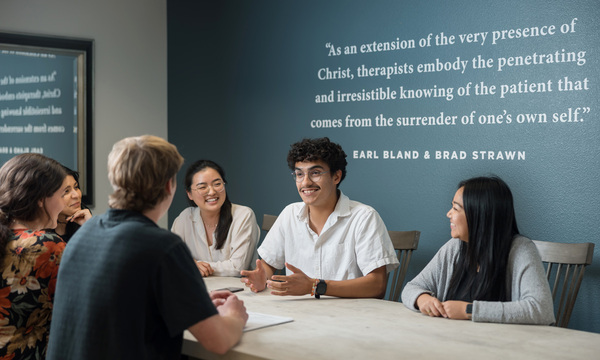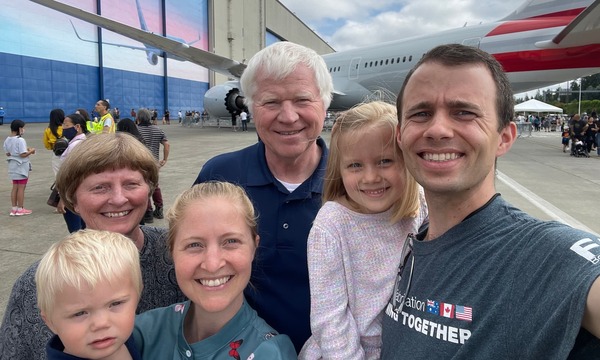In light of recent national tragedies such as the Sandy Hook shooting and Boston Marathon bombings, Biola’s “Forgiveness Awareness Week” addressed an issue that many people shy away from in times like these. Biola dedicated five days to addressing a concept that can be extremely difficult for people of all ages, but often especially a college student.
Hashim Garrett, one of the week’s featured speakers, was shot multiple times and paralyzed as a young teen. He uses his own experiences to motivate teens around the country, observing how young people specifically deal with forgiveness. Garrett emphasized the importance of not blaming adolescents when they hold grudges or struggle to forgive, because often they haven’t been taught otherwise. Instead, he encouraged the need to educate and inform them properly. For Garrett, in order to forgive his attacker, he had to shift the way he looked at other people, realizing that no human is perfect and everyone makes mistakes.
He shared with Biola students that he realized “as difficult as it may appear, sometimes good things can come out of bad things,” as was the case for him, personally.
Other factors also have an effect on how young people view forgiveness. Often referred to as “generation entitlement,” studies by the Pew Research Center and the Journal of Personality and Social Psychology show that this generation is more self-focused, having life goals that center around fame and fortune. A study done in 2004 by the Journal of Personality and Social Psychology claims narcissistic entitlement as a direct barrier to forgiveness.
Biola communications professor Tim Muehlhoff also blames busyness and distraction, due to a fast pace of life and constant use of social media.
“I would say your generation is the busiest generation, and with busyness comes hurt feelings and unresolved conflict, and those are fertile grounds for a lack of forgiveness,” said Muehlhoff.
Other featured speakers during the week included founder of Breaking the Cycle Johann Christof Arnold, who provided 2,000 free copies of his book, “Why Forgive?” and Chief Charles Williams, who has worked with families affected by the Sandy Hook shootings. In spite of the clear difficulties of forgiveness, the week’s speakers continually stressed its importance.
“Surely now is a time when the world could use some more forgiveness,” wrote forgiveness researcher Everett Worthington, one of the featured speakers during Forgiveness Awareness Week. “Americans resent the Muslim world for September 11. Iraqis and much of the Middle East feel humiliated by the United States ... Still, many people hesitate to ask for or grant forgiveness when they feel they have nothing to gain in return.”
New research does suggest that forgiveness can benefit people’s health, according to Worthington, guest speaker at Biola and who directed A Campaign for Forgiveness Research. However, both Worthington and Muehlhoff think that motivation to forgive goes beyond a personal gain.
“Forgiving because it will cause [you] to thrive as a human being will only get you so far ... forgiveness really takes route when you forgive because it’s good for the other person,” said Muehlhoff.
Taking it a step further, he said, “The Christian motivation is just deeper than that; Jesus literally says, do it for me.”
In addition to the sessions, Biola’s “Forgiveness Awareness Week” featured the opening of a new Holocaust exhibit, a “Prayer through Poetry” event, and a free screening of the critically acclaimed story of forgiveness, “Les Miserables.”
Biola hosts awareness weeks once per semester to provide students with resources and educational events to equip them in "real life" areas like addiction, mental health, relationships, sexual violence, and this semester — forgiveness. Awareness weeks help close the disconnect between the intentional curricular instruction students receive in their classes and the natural, co-curricular "instruction" students receive through relationships, dorm life, etc.
Written by Carissa Lehmkuhl, Media Relations Intern. For more information, contact Jenna Bartlo, Media Relations Specialist, at 562.777.4061 or jenna.l.bartlo@biola.edu.
 Biola University
Biola University


.jpg)